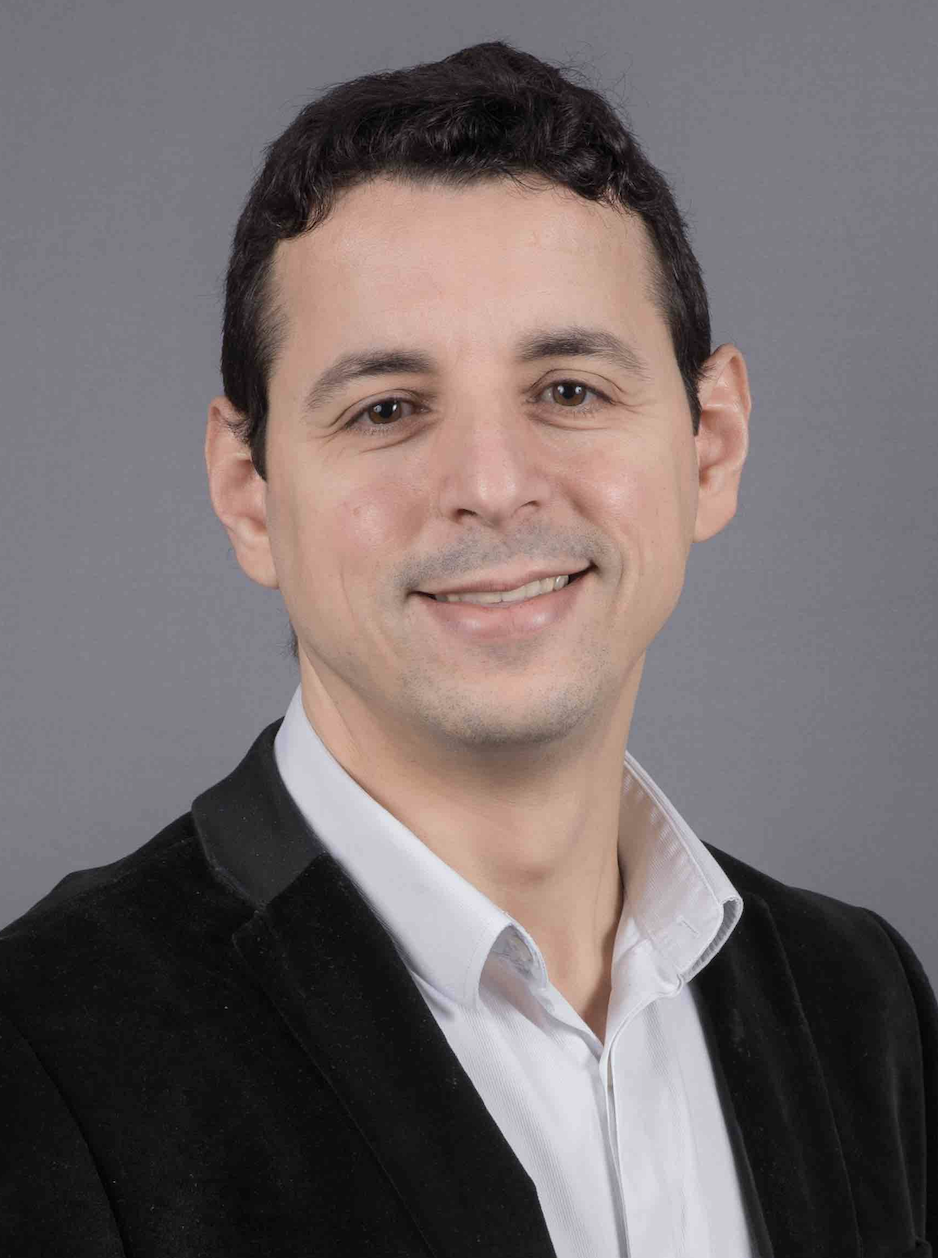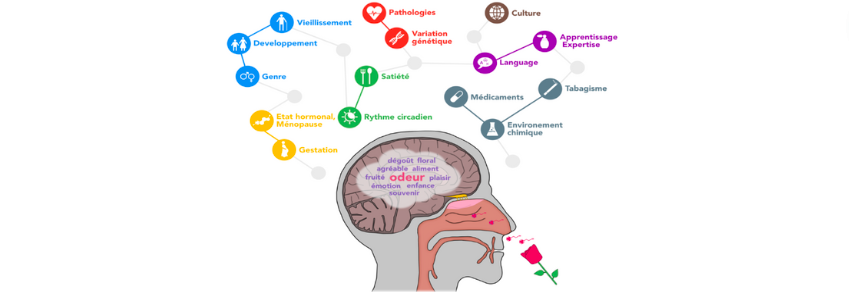Understanding olfactory pleasure through an interdisciplinary approach (CLIO)
Smells are important for our diet, our relationships with others and our psychological well-being. The sense of smell is characterized by interpersonal diversity, due to physiological, socio-cognitive and genetic factors. Although this variation is well identified by researchers and manufacturers, the influence of these factors on olfactory pleasure is still poorly understood. The CLIO study aims to gain a better understanding of how genetics on the one hand and physiological and socio-cognitive factors on the other contribute to the construction of olfactory pleasure.
This 3-year study, supported since its launch by the Per Fumum Endowment Fund, is being conducted jointly by Moustafa Bensafi, neuroscientist and director of research at the Lyon Neuroscience Research Centre (CNRS/ Inserm/ University of Lyon) and Denis Pierron, CNRS researcher at the Evolution and Oral Health Laboratory (Paul-Sabatier University Toulouse III).
The second phase of the study focused on understanding physiological and cerebral reactions to pleasant smells.
Faced with the difficulty of defining this olfactory and hedonic diversity, the scientific approaches have been mono-disciplinary: anthropology, psychology, neurophysiology, genetics and molecular biology of receptors. Efforts have been made to combine these disciplines two by two, but rarely – if ever – have genetics, neuroscience and psychology been integrated into a single approach. The accumulation of mono-disciplinary results cannot replace an integrated approach that could reduce the heterogeneity of these partial results and thus offer a more complete view of the whole.
The second part sought to relate genetic, physiological and perceptual variables with brain activity (measured by electroencephalography), to better understand how these factors contribute to the brain’s representation of human olfactory pleasure (Experimentation with 300 subjects).
For the 3rd part of the study, the focus of the fund’s support will be on the social factors involved in hedonic odor perception and their interaction with the previously highlighted variables.
This part of the project involves participants, selected on the basis of the results of the previous components, being given the task of evaluating odorant products containing beta-ionone in group and individual situations. The groups will be formed according to the genetic profile of sensitivity to beta-ionone of the individuals (either homogeneous or heterogeneous within the group), which will make it possible to study the interaction between genetic and social factors in appreciation.

Director of Research at the Lyon Neuroscience Research Centre
Moustafa BENSAFI
Moustafa Bensafi is Director of Research at the Lyon Neuroscience Research Centre (CNRS/Inserm/University of Lyon).
In 2008 he received the bronze medal of the CNRS and was awarded the Moskowitz Jacobs Inc. Award for Research Excellence in the Psychophysics of Taste and Smell.
He is the author of more than 100 scientific publications and a book on the Brain and Smell. His current work focuses on the brain function of the sense of smell and olfactory deficits in humans.

CNRS researcher at the Laboratoire Évolution et Santé Orale (Université Paul-Sabatier Toulouse III)
Denis PIERRON
With a PhD in biological anthropology, Denis Pierron has been studying the diversity of human populations for 15 years.
During his PhD, he explored the genetic diversity of the French population, and continued his research during his post-doc (2009-2011) at Wayne-State University in Michigan. It was during this period in the US that he became interested in the genetic coding of human olfactory receptors.
Since this period and his entry into the CNRS, he has sought to better understand the importance and role of genetic diversity in the perception of tastes and odours in populations around the world. He is the author of about fifty scientific publications.

Associate Professor in Neuroscience (Department of Letters and Human Sciences, Psychology Section, University of Reims Champagne-Ardenne)
Marylou MANTEL
Marylou Mantel obtained her Ph.D. in Cognitive Neuroscience in 2021, focusing on inter-individual variability in odor perception.
Since 2023, she has been an Associate Professor in Neuroscience at the Cognition Health Society C2S Laboratory (Department of Letters and Human Sciences, Psychology Section, University of Reims Champagne-Ardenne), where she investigates the impact of odors on social cognition. She is the author of about ten scientific publications in the field of olfaction and taste.
